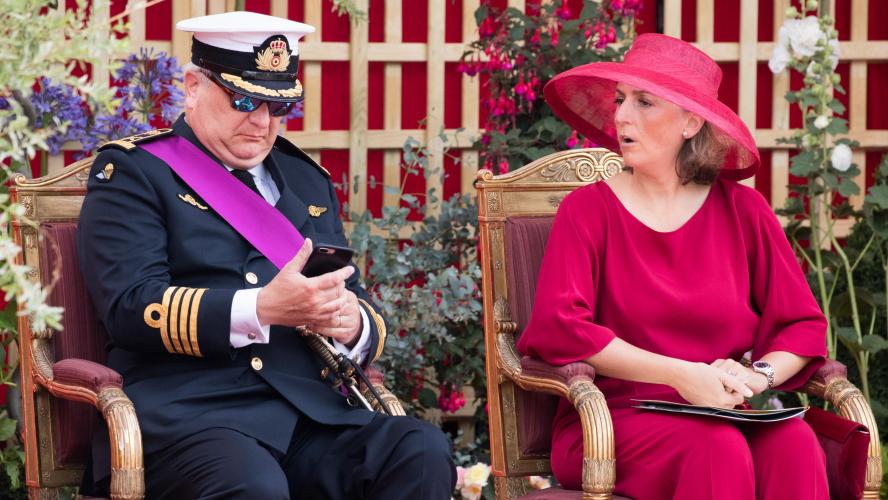Prince Laurent of Belgium said he did not see how King Leopold II could have harmed Congolese people because "he never went" to the Congo, which he personally owned for decades.
"He never went to Congo himself," Laurent, the younger brother of Belgium's King Philippe, said in an interview with Sudpresse.
Related News
- Leopold II statues in Brussels could be removed, says minister
- Syllabus for secondary students will include colonialism, says education minister
- KU Leuven will take down Leopold II bust
Laurent's statements come amid a surge in support for the removal of monuments honouring the colonial king, who declared himself sole owner of the Congo Free State in the late 1800s.
Several statues of Leopold II have already been taken down, with many others defaced as anti-racism movements gain steam across the world, fueled by the police killing of US Black American George Floyd.
Extensive accounts and records of forced labour and systemic brutality characterised Belgian occupation of the Congo, which Leopold ran through the brutal Force Publique, tasked with enforcing rubber quotas and overseeing labour at the fields.
"I do not see how he could have made people there suffer," Laurent said. "You must know that there were many people that worked for Leopold II, and they were really abusive — but that does not mean that Leopold II was abusive."
"Just look at what King Leopold II did for Belgium and you will understand," he added, referring to Leopold's reputation as the 'Builder King' of Belgium for the numerous public works he ordered, many financed through the exploitation of Congo's people and resources.
During his reign, Leopold ordered and oversaw the construction of, among several others, Brussels' landmark triumphal arch in Parc du Cinquantenaire, of the Hippodrome Wellington in Ostend and of the Africa Museum in Tervuren, which was filled with a large collection of colonial artefacts.
Personal properties built and acquired, including the Royal Greenhouses of Laeken and numerous massive estates, were donated to the state-owned Royal Trust on the condition that they remain at the disposal of the royal family.
In the interview, Laurent also said that whenever he met a head of state from Africa he "always presented his excuses for what Europeans had done to Africans in general."
Gabriela Galindo
The Brussels Times

